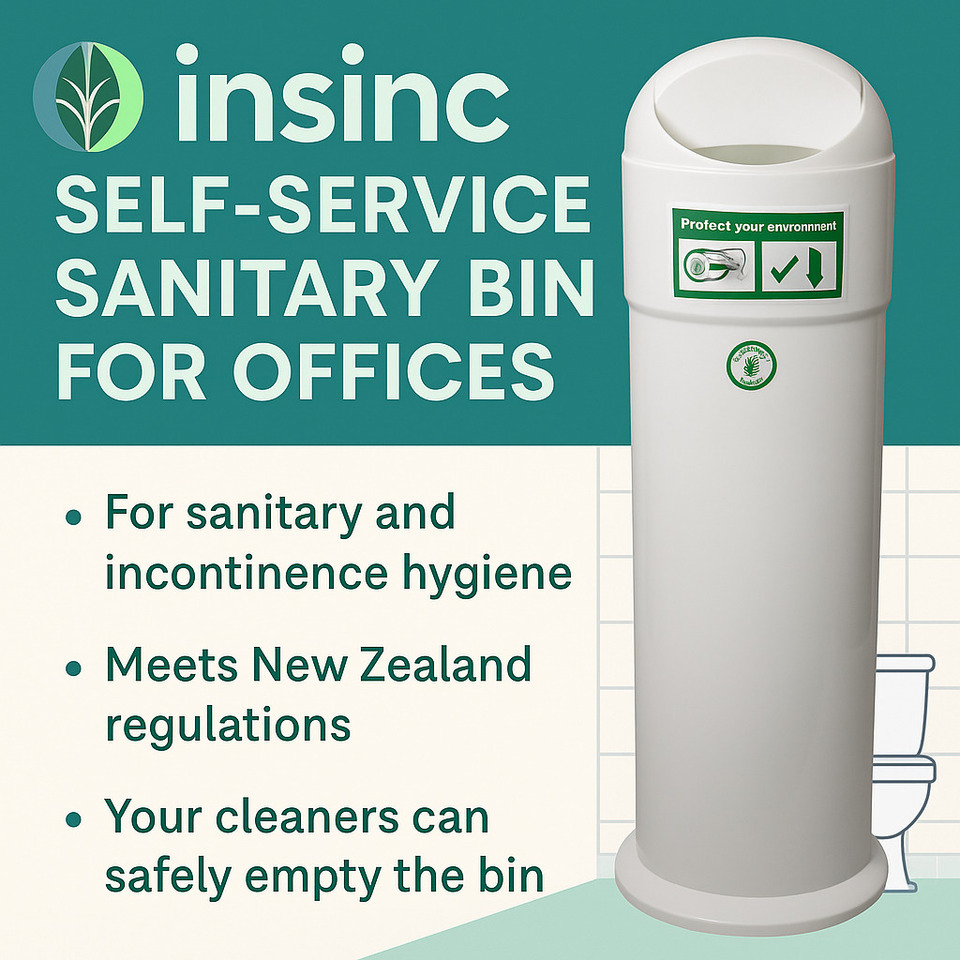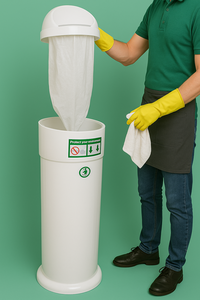Self-Service Sanitary Bins for Offices: A Smart, Compliant, and Cost-Effective Solution in New Zealand
In today’s workplace, maintaining hygiene and complying with health standards is more critical than ever. While the focus often lies on hand hygiene and surface cleanliness, sanitary bins for office environments are just as essential. Traditionally serviced by external contractors, these bins are now evolving into a self-service model—a game-changer for businesses seeking to reduce costs, increase control, and enhance hygiene.
This comprehensive guide explores why self-service sanitary bins are the ideal choice for New Zealand workplaces and how they meet both legal and ethical standards.
Understanding New Zealand's Legal Requirements for Sanitary Bins
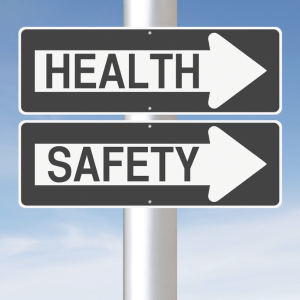 Building Code Clause G1: Personal Hygiene
Building Code Clause G1: Personal Hygiene
In New Zealand, the Building Code Clause G1 mandates that sanitary towel disposal units—either permanent or portable—must be provided in female toilet facilities. This ensures safe and hygienic disposal methods are available at all times.
Health and Safety in Employment Regulations 1995
These regulations emphasise the employer’s duty to provide clean and safe work environments. Sanitary waste disposal, when neglected, can lead to legal non-compliance and reputational damage.
The Rise of Self-Service Sanitary Bins in NZ Workplaces
Cost-Saving Benefits
Outsourcing bin servicing can be costly over time. Self-service bins eliminate recurring fees, providing a more budget-friendly long-term solution.
Enhanced Hygiene and Control
With self-service options, businesses can control cleaning frequency and maintain high hygiene standards without depending on external providers.
Greater Flexibility
Servicing can be scheduled based on actual need rather than rigid service contracts, leading to cleaner and more responsive restroom environments.
Features of Modern Self-Service Sanitary Bins
-
Easy-to-Replace Liners: Quick-change systems allow cleaning staff to service bins with minimal contact.
-
Sleek, Compact Design: These bins are space-efficient and fit neatly within restroom cubicles.
- Touch-Free Operation: Some bins offer pedal or sensor-activated lids for hygenic use.
How to Safely Service Sanitary Bins In-House
-
Remove used liner carefully, avoiding direct contact.
-
Seal and dispose of the liner in general waste (in NZ, sanitary waste is non-hazardous).
-
Sanitise the bin with disinfectant.
-
Install a fresh liner and secure the lid.
Training your cleaning staff on this simple protocol ensures a safe and hygienic process.
Comparing Self-Service vs. Third-Party Serviced Bins
| Feature | Self-Service Bin | Third-Party Service |
|---|---|---|
| Cost | One-time bin cost + liners | Ongoing monthly service fees |
| Control | Full control over cleaning frequency | Fixed schedule |
| Hygiene | Can be cleaned as needed | May wait for service call |
| Flexibility | Adaptable to staff and space | Rigid system |
| Environmental Impact | Fewer emissions from service vans | Regular vehicle use |
Top Self-Service Sanitary Bin Products in New Zealand
Visit Self Service Sanitary Bins NZ to explore:
- TerraCyclic - Eco-friendly cartridges and fully recyclable parts - this is our staff pick!
-
Pod™ Petite Manual & Automatic – Compact, discreet, and easy to service.
-
Pod™ Classic – Suitable for higher capacity needs or unisex toilets.
These bins support DIY servicing while maintaining professional hygiene standards.
Placement Strategies for Optimal Hygiene and Compliance
-
Place bins inside each cubicle for privacy and ease of use.
-
Ensure visibility and accessibility in accessible and unisex restrooms.
-
Use clear signage to indicate the intended usage and servicing method.
Training Staff for Effective Bin Maintenance
-
Provide a clear Standard Operating Procedure (SOP).
-
Run short training workshops for cleaning staff.
-
Use log sheets to track cleaning frequency and user feedback
Environmental Benefits of Self-Service Systems
-
Reduces carbon footprint due to fewer service vehicle trips.
-
Biodegradable liners and recyclable bins support green goals.
-
Encourages on-demand servicing, which minimises waste and overflow.
Expanding Use: Self-Service Sanitary Bins for Incontinence Product Disposal
These bins aren’t just for menstrual hygiene. They also serve a critical need for incontinence product disposal, supporting: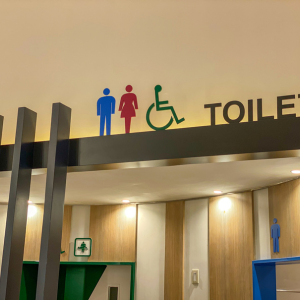
-
People with chronic health conditions or disabilities
-
Elderly employees using adult pads or briefs
-
Men dealing with prostate-related issues
-
Trans and non-binary individuals with specialised hygiene needs
Why It Matters
-
Discreet & Respectful: Cubicle placement ensures private disposal.
-
Odour Control: Sealed and antimicrobial designs limit odour.
-
Inclusive: Supports a diverse workforce with varying hygiene needs.
Tips for Office Managers
-
Choose larger bins in mixed-use or accessible toilets.
-
Clearly label bins for sanitary and incontinence products.
-
Train staff on safe handling and respectful servicing.
Making these bins accessible and inclusive demonstrates commitment to employee dignity, health, and well-being.
Addressing Common Concerns and Misconceptions
-
Is in-house servicing safe? Yes, with PPE and training, it’s simple and sanitary.
-
Does this meet NZ regulations? Absolutely—self-service bins meet all compliance criteria.
-
Will it save money? Businesses typically see savings within the first year.
Case Studies: Successful Implementation in NZ Offices
-
Corporate workplaces report improved employee satisfaction.
-
Educational institutions appreciate low-cost, easy maintenance.
-
Healthcare offices value hygiene control and immediate servicing.
Integrating Self-Service Bins into Hygiene Policy
-
Add to your workplace hygiene guidelines
-
Communicate policies in staff handbooks
-
Involve employees in feedback loops
FAQs About Self-Service Sanitary Bins in Offices
Q1: Are self-service bins legally compliant in NZ?
Yes. NZ Building Code and Health & Safety laws require a bin of some form. Self-service bins meet this requirement when maintained properly.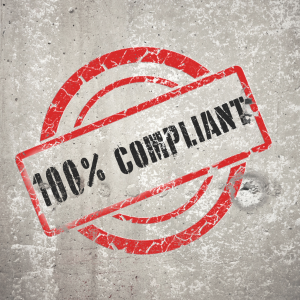
Q2: Who should service the bins?
Your cleaners or designated staff can service bins safely with gloves and proper training.
Q3: How often should bins be emptied?
This will depend on usage and how many staff/customers are using the bins. High-traffic areas may require more frequent checks. Self-service bins are easy to visually (without viewing the product inside) check to see if they need changing.
Q4: Can incontinence products go into these bins?
Yes. Sanitary bins can accommodate both menstrual and incontinence products.
Q5: Is it safe to dispose of sanitary waste in regular rubbish?
Yes. In NZ, sanitary waste is classified as non-hazardous and can go in general waste after being sealed.
Q6: Do I need special products to maintain the bins?
Use compatible liners and general disinfectants to clean—no special products required.
Conclusion: Embracing Self-Service Sanitary Solutions for a Healthier Workplace
Self-service sanitary bins offer a hygienic, inclusive, and economical way to meet your office’s legal and ethical responsibilities. Whether for menstrual hygiene or incontinence disposal, these bins reflect a workplace culture that values health, dignity, and smart decision-making.
�� Explore trusted products and learn more at Self Service Sanitary Bins NZ
Posted: Friday 9 May 2025

